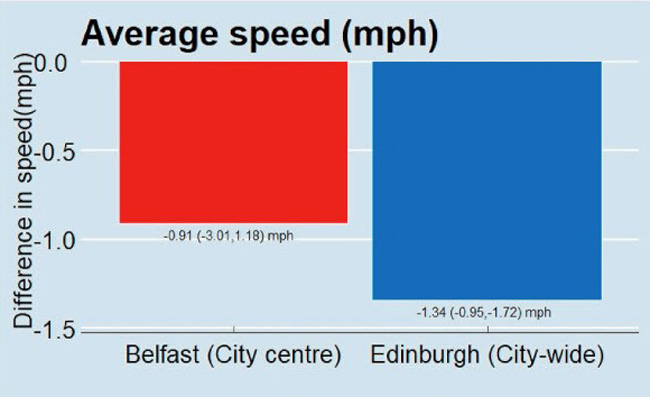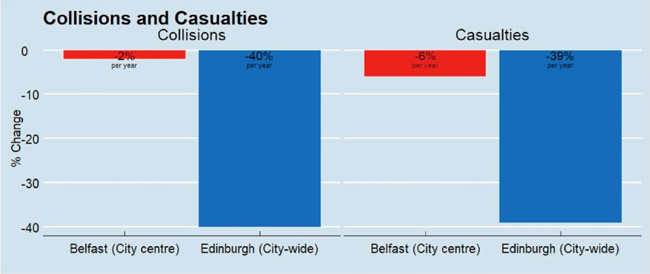Rod King MBE, founder and campaign director at 20’s Plenty for Us, responds to a new study that – on the face of it – casts doubt on the effectiveness of 20mph limits.
We are delighted at the progress being made by Transport for London (TfL) in its plans for extending its adoption of 20mph limits on its managed roads.
A detailed review of the Queen’s University report on the 20mph city-centre scheme in Belfast should not worry TfL bosses, who already have a strong record of success and experience of the benefit of 20mph limits on their own roads and throughout London.
In fact, such a review of the report would show that the implementation in Belfast was so atypical of 20mph limit deployment in the UK that very little could be learned that was not already known.
The implementation in Belfast was on just 76 streets in the city centre, on which the average vehicle speed was well below 20mph. Of these 76 streets, 27 were already fully or partially pedestrianised. At the same time, other travel initiatives included the introduction of a rapid transit system and extension of the city centre bus lane provision. There was also little community engagement or marketing of the 20mph scheme. The total cost of the scheme was just £10,000.
Such an isolated and small implementation, which keeps 30mph as a norm on all the other streets in the city was always going to result in little change and this report confirms this. In fact, other reports which compared Belfast with Edinburgh and its city-wide 20mph scheme, show just how more effective 20mph schemes are when implemented citywide.
The contrast couldn't be starker. Belfast implements a small and isolated 20mph scheme in its city-centre and gets little change on congested streets where speeds are already low. Edinburgh goes citywide, delivering it to city centre, suburbs, residential areas, shopping streets with engagement and education and gains a significant reduction in speeds and casualties.
See these charts from a previous report by the same authors that compares Edinburgh and Belfast 20mph schemes.

Changes in average vehicular speed, with labels indicating the point estimate of change and the accompanying 95% confidence interval

Changes in road traffic collisions and casualties, as observed percentage reductions
No doubt some will seize on the Queen’s University report as evidence that ‘20mph limits don't work’. But we would say that if any road change is implemented poorly and without reference to good practice it will be sub-optimal with little benefit.
Across the UK, local authorities are implementing 20mph as a norm for most urban and village streets with reductions in casualties of between 20% and 40% (Edinburgh, Calderdale, Bristol, Cheshire West and Chester, Bath, Warrington, and many more). On faster roads vehicle speeds are reducing by 5-6mph.
Key factors in successful 20mph implementations are:
- make 20mph the norm
- deliver 20mph on driver's home streets
- engage with the public on why it is being implemented
- deploy on faster roads also for maximum effect
By ignoring these, it is no surprise that the Belfast implementation is showing minimal short-term benefits.
To put it simply - don't do it like Belfast; do it like Edinburgh or London. Or even better, do it like Wales and set a national default 20mph urban/village limit.
Belfast has much to gain from learning from successful 20mph implementations in the UK. The Department for Infrastructure for Northern Ireland (the highway authority) should look to rolling out 20mph to all Belfast residents in a citywide roll-out that mirrors the successes in England, Scotland and Wales.
Register now for full access
Register just once to get unrestricted, real-time coverage of the issues and challenges facing UK transport and highways engineers.
Full website content includes the latest news, exclusive commentary from leading industry figures and detailed topical analysis of the highways, transportation, environment and place-shaping sectors.
Use the link below to register your details for full, free access.
Already a registered? Login